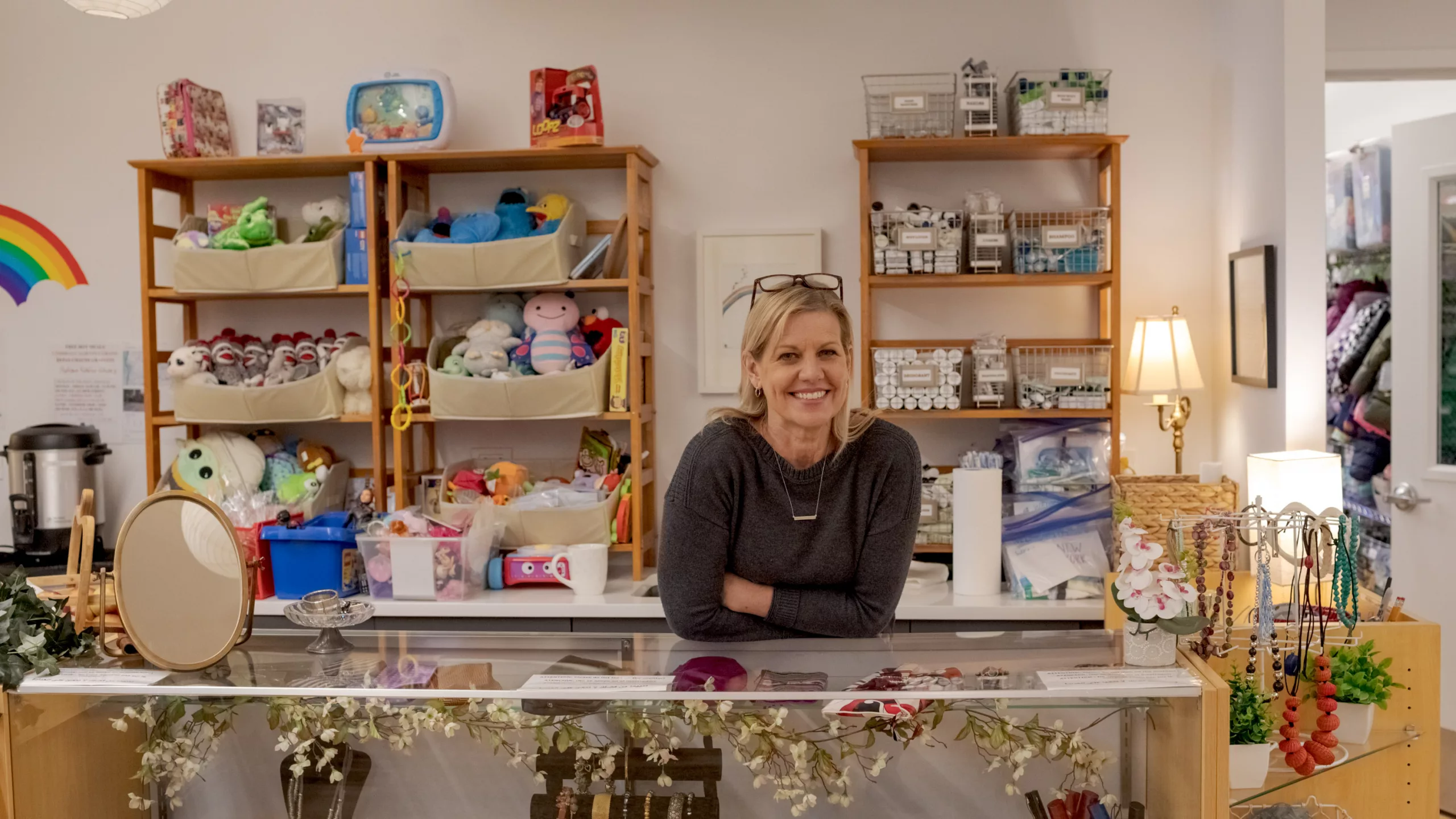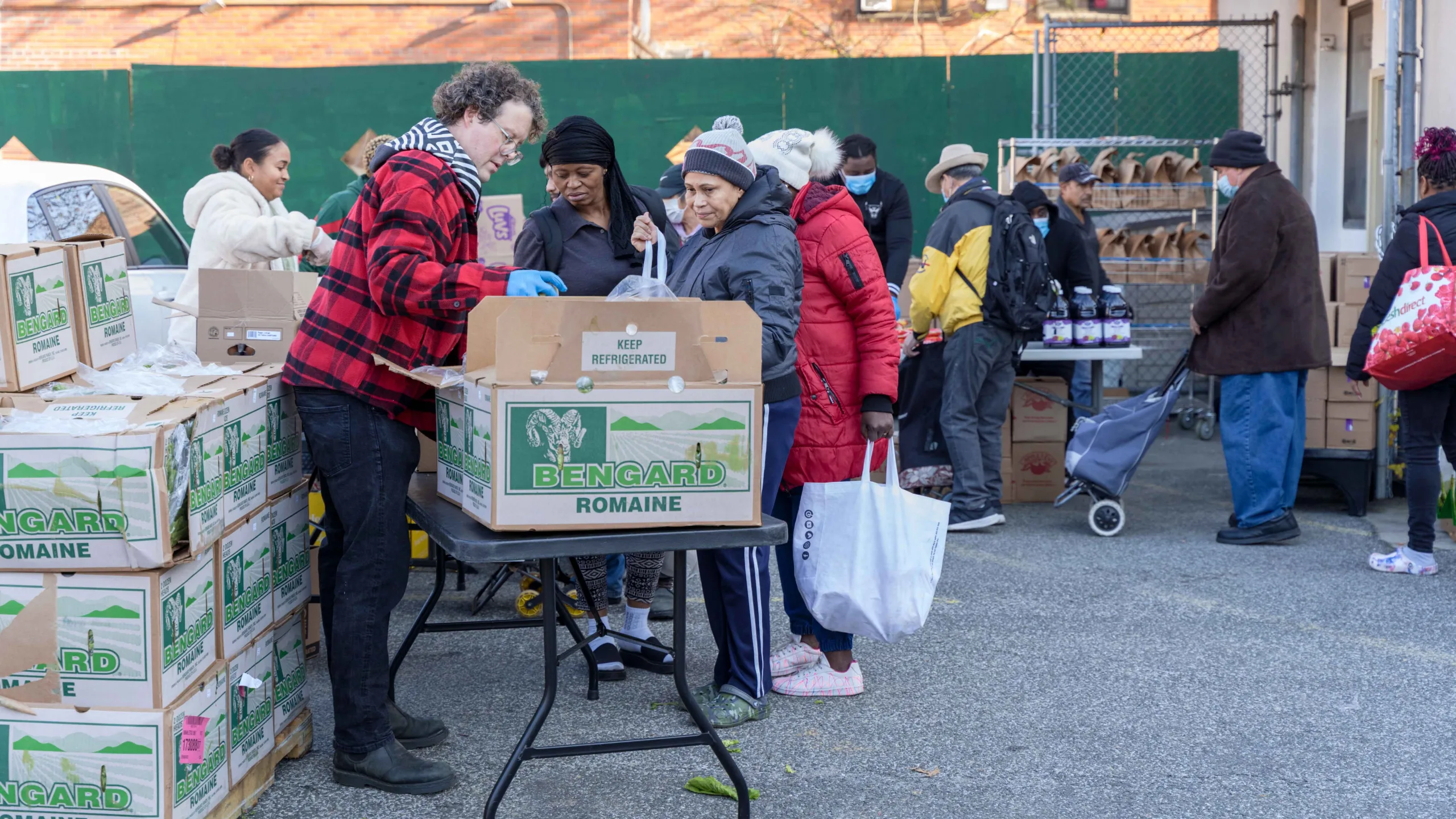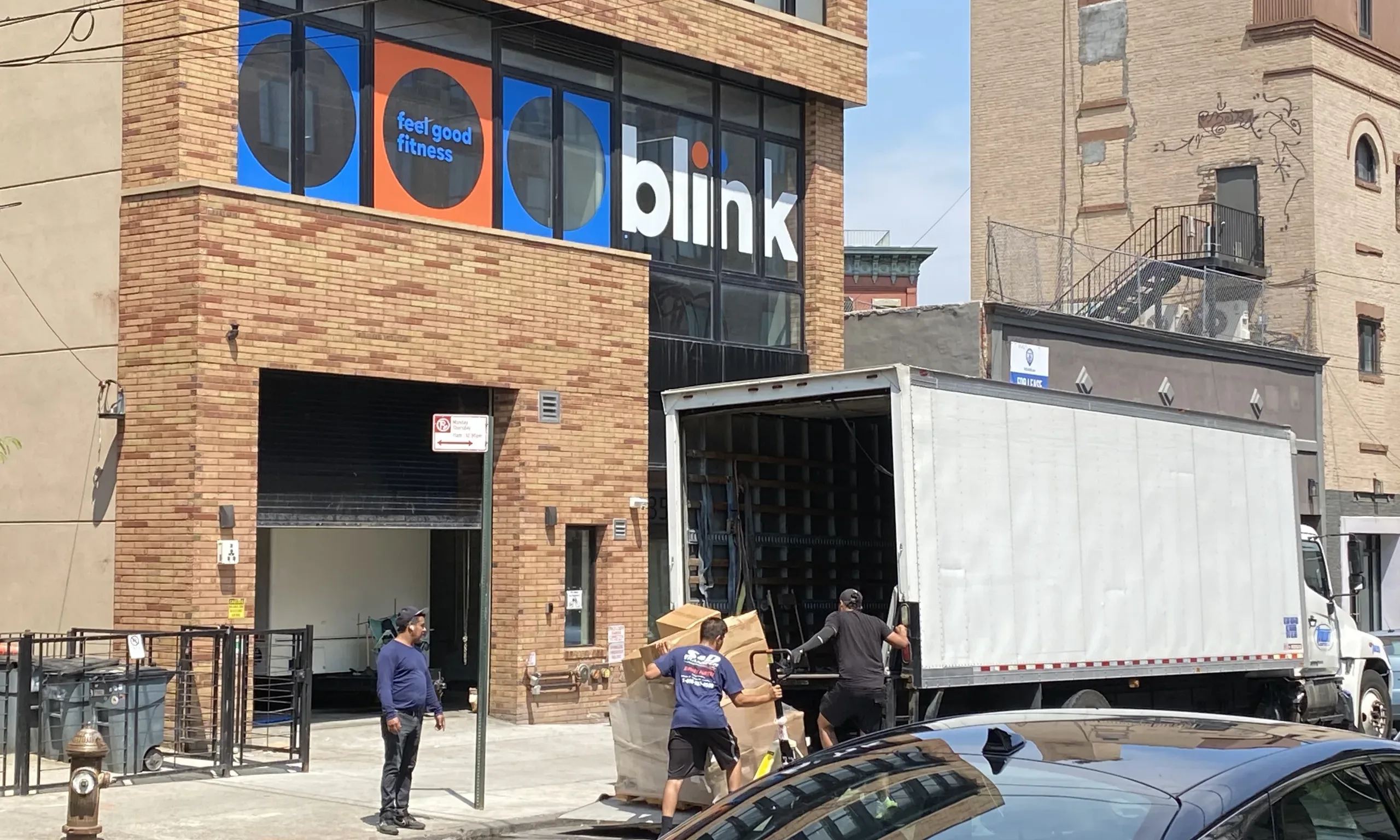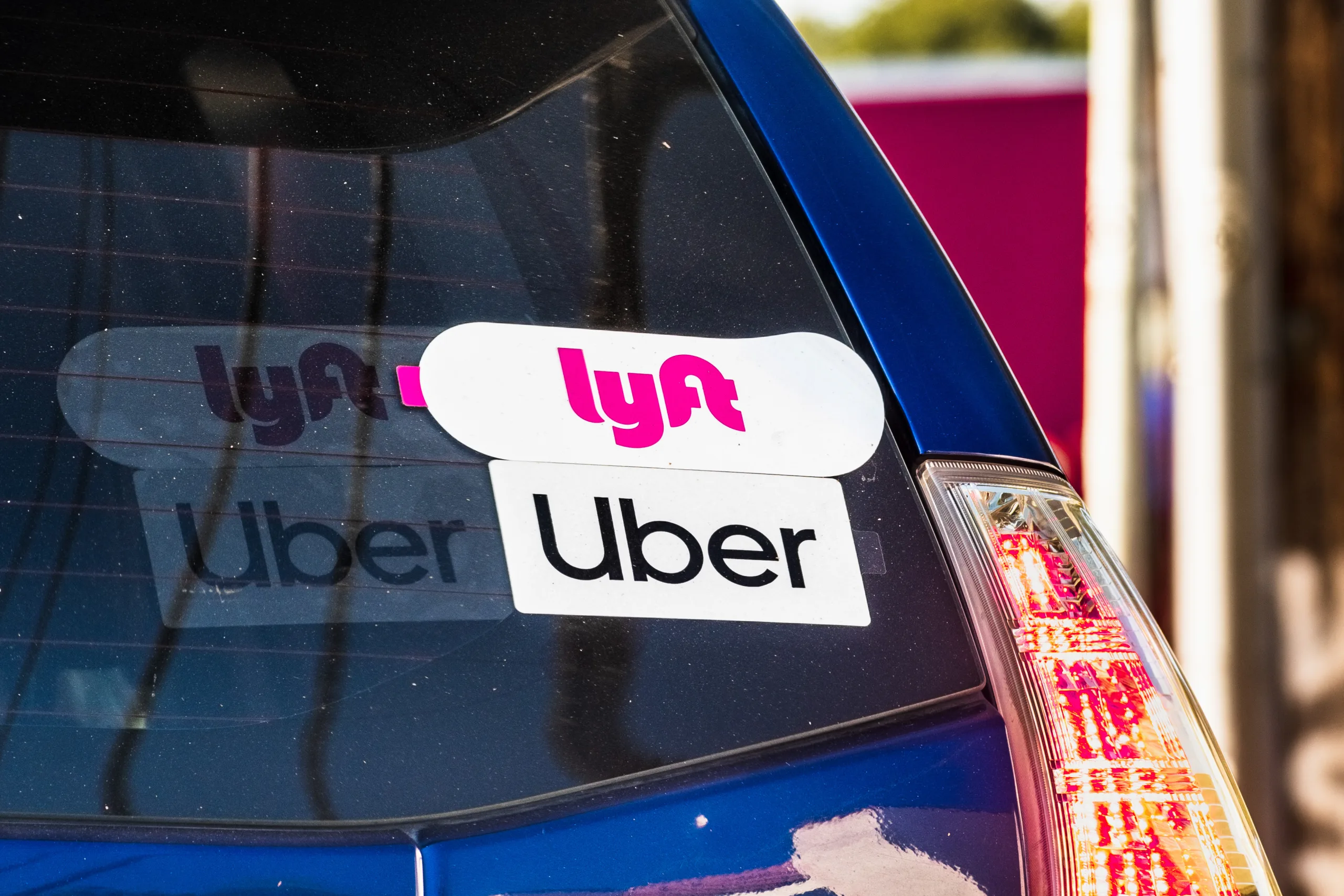At the Little Shop of Kindness, it is hard to predict how many “shoppers” will visit on a regular basis. The clothing store provides free donated clothes for migrants in New York City, and Ilze C. Thielmann, founder of the shop and director of Team TLC, says what is predictable are the more than 16 volunteers needed to keep the store operating every week.
New efforts like the Little Shop of Kindness are not unique to Team TLC, a non-profit providing humanitarian assistance to asylum seekers in New York City. They are representative of some of the broader initiatives started by local organizations to assist the 65,000 asylum seekers under the city’s care.
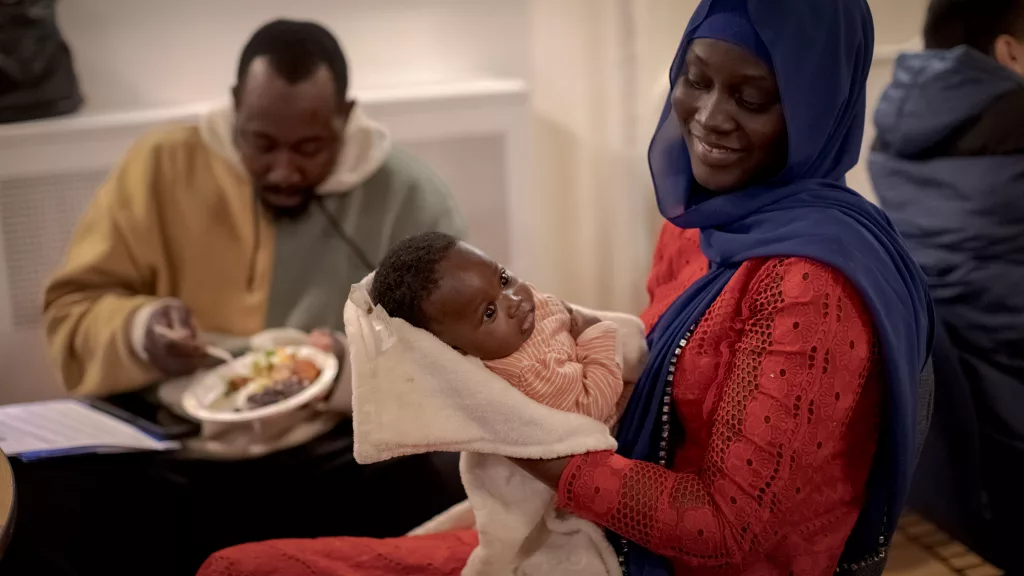
Documented spoke with and tracked over 20 nonprofits and mutual aids servicing asylum seekers in NYC, who emphasized their reliance on donations and volunteers to provide services not available at the shelters where asylum seekers reside. Multiple organizations around the boroughs reiterated the importance of volunteers who bring different areas of expertise and render skills as chefs, accountants, grant writers, organizers, and more, to keep the organizations afloat and sustainable.
Ann Shields, communications director at East Village Loves NYC (EVLovesNYC), which is located near the migrant reticketing center at St. Brigid Church, told Documented that at least 60 volunteers are needed to feed anywhere from 500 to 1,000 asylum seekers that knock on their door on a weekly basis.
Astoria’s Nneji restaurant, specializing in West African cuisine, prepared 3,900 meals during the month of Ramadan for practitioners of the Islamic faith. The founder, Beatrice Ajaero, said that she relies on the help of her family members and three to four core members who are, from time to time, assisted by high school volunteers who are trained in food safety and food handling to help with the front and the back of the house.
For Thielmann, the idea of creating the Little Shop of Kindness resulted from the immediate need of appropriate seasonal clothing for migrants and children attending public schools. She explained that beyond clothing donations, the shop also offers enrollment to IDNYC, public school information, and other important services.
Also Read: IDNYC Card: What It Is, How to Apply and Its Benefits
One afternoon at the shop, located inside the third floor of the Avenue Church in the Upper East Side, a single mother and her son entered the main area of the space. The mother’s eyes wandered through the shop, which consists of a waiting space and two rooms filled with clothes. She fixated first on a glass display filled with accessories and plushies. The son, on the other hand, rushed to the children’s playing area and picked up a playing set of magnetic tiles.
In the span of one hour, at least 15 other migrant families wandered through. Every week the shop services on average 320 appointments, which have to be scheduled online to ensure that migrants have enough time to browse the clothes available with the help of a volunteer who often speaks Spanish. Each appointment can be up to a family of four, Thielmann said.
The shop materialized out of necessity, Thielmann told Documented, who noted that Team TLC is part of the national organization Grannies Respond, and was one of the first organizations to be notified that a bus with 54 migrants would be arriving at Port Authority bus terminal in the Spring of 2022. Along with local leaders, like Adama Bah, Power Malu, and South Bronx Mutual Aid, they set up a welcoming operation inside the bus terminal where they could welcome asylum seekers. At that time, Thielmann remembers, she had around 16 volunteers helping with distribution of food, clothes, medical referrals, and directing them to New York City shelters.
As the number of migrants bussed by the Governor of Texas increased, so did the demand for services. “At one point I had more than fifty thousand dollars in my personal credit card,” Thielmann said, adding that she often could not sleep while thinking about the debt she was accumulating as she bought food and tickets to reallocate the migrants. “We were in the red a lot of the months.”
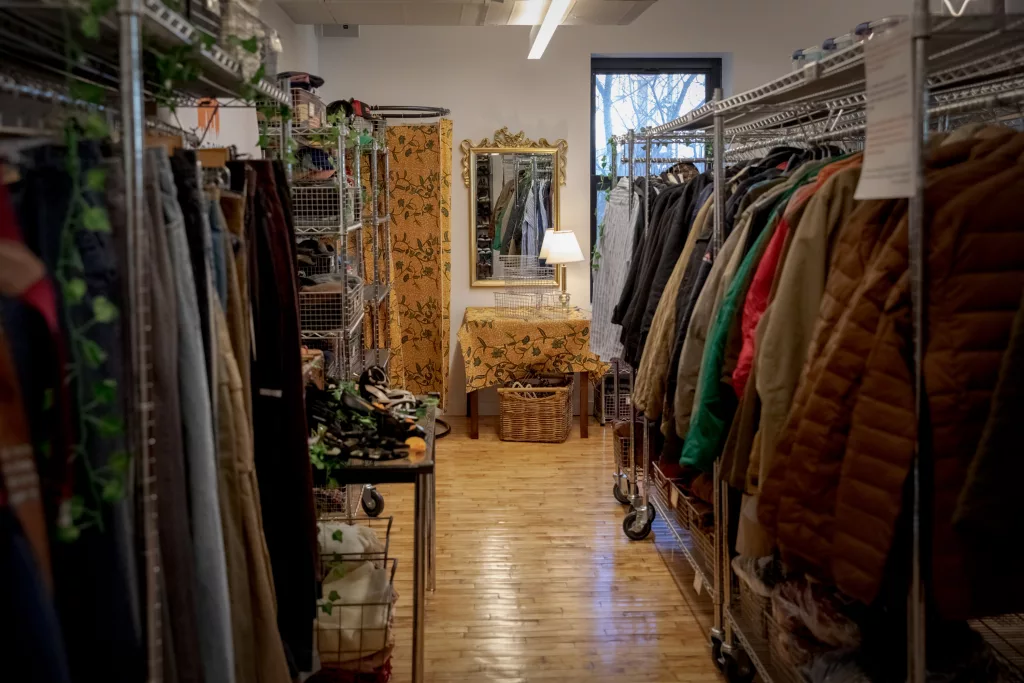
As the efforts of the organizations welcoming asylum seekers at Port Authority began to take prominence in the news, so did the interest of New Yorkers who wanted to help. Two years after the operation at Port Authority started, Thielmann said that there is a list of 1,959 New Yorkers who have signed up to volunteer with Team TLC as of mid April. Many of the volunteers bring so much knowledge and expertise that they take on roles that have helped the organization grow in a way that is sustainable. One of the volunteers, for example, has helped Team TLC write grants, while others have helped keep track of the accounting.
“I owe it all to the volunteers,” Thielmann said, adding that an anonymous donor is currently paying the rent of The Little Shop of Kindness that costs $8,500.
Nonprofits like Bushwick City Farms Migrant Mutual Aid and OpenHearts Initiative have also been hosting clothing drives to meet the needs of asylum seekers at shelters with the help of volunteers and donations.
Athletes Artists Activists (AAA), a nonprofit running a soup kitchen and resource center as part of the Resources, Opportunities, Connections, and Community (ROCC) program at the Metro Baptist church, a block away from Port Authority, said that they need at least 15 volunteers to help them with the 200 to 400 asylum seekers that reach out to them daily. Migrants ask for services like legal assistance, health insurance, and IDNYC referrals.
Also Read: This Mosque is A Refuge for Migrants and Asylum Seekers in the Bronx
Power Malu, founder of AAA, added that the organization, aside from offering those services, aims to create the space to nurture a welcoming community. “We give them the opportunity to cook food at the church and exchange their native dishes with other countries.”
At Afrikana, a non-profit organization founded by Adama Bah seven months ago, every month around 4,000 asylum seekers — the majority of whom are from West African countries — have been provided services that include IDNYC applications, shelter referrals, clothing drives, to name a few.

The operation at the headquarters located in Harlem is run by Bah, her siblings, and a group of volunteers. Depending on the demand, she said, the working hours can amount to more than 40 hours a week. “My sister, my brother, and I’m here every day. Like the food pantry, we would desperately still be looking for volunteers because we’re so tired. We can’t stop the food because it’s not just for asylum seekers; it is to serve all [New York] residents.”
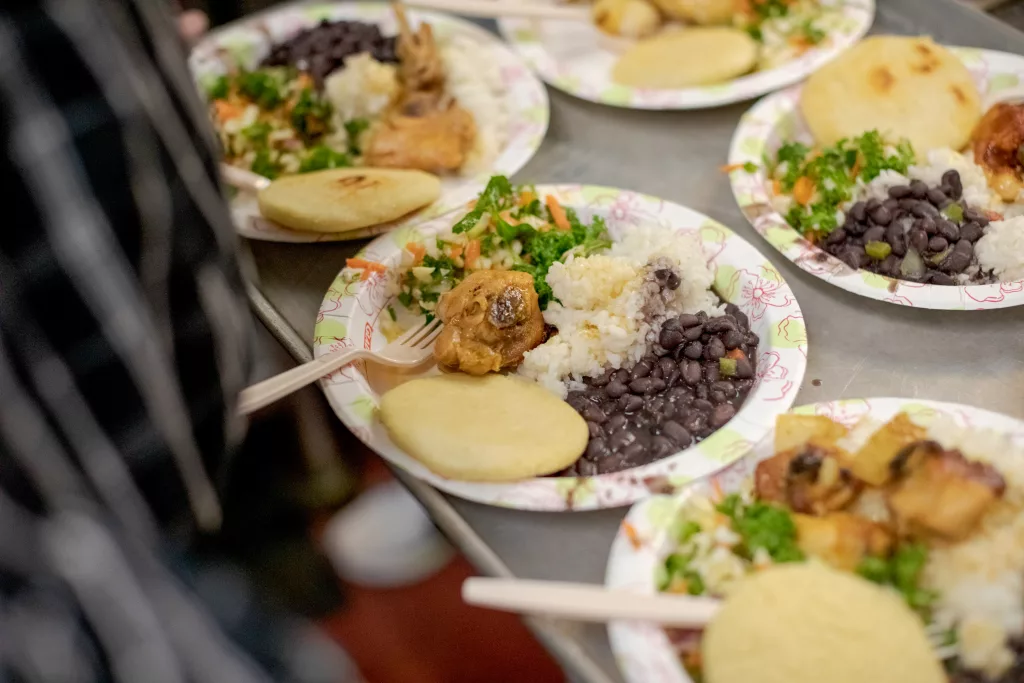
As Documented reported last year, access to food that is culturally sensitive has been difficult for those living inside New York City shelters, prompting many to rely on food pantries outside of shelters, and make weekly visits to organizations like Afrikana and Nneji — both of which created inclusive menus to provide to practitioners of Islam during the month of Ramadan. In Documented’s Spanish newsletter, Documented Semanal, readers sent in more than 50 requests for food pantries in the month of January. Many of them cited that, while they were grateful for the food at the shelters, it was cold and low in nutritional value.
Also Read: Migrants Find Positive Opportunities To Volunteer, Explore in NYC
Other organizations, including RaisingHealth, a non-profit organization serving neighbors in Prospect Park, have also seen an increase in the number of asylum seekers who have accessed their food pantry services. Hewett Chiu, president and CEO of the organization, said they distribute up to 300 bags of food every other week, with the help of staff and volunteers who are often bilingual.
TestPost3
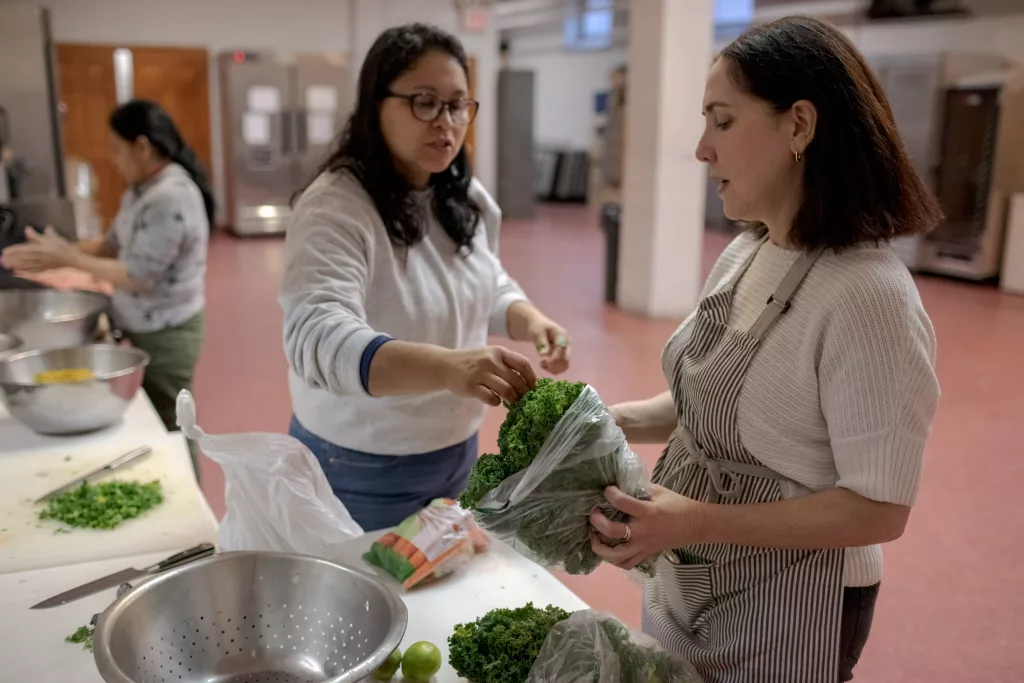
Bah and Chiu both said their organizations have a wishlist through Amazon where New Yorkers can purchase toiletries and other necessities to help members of the community. They — along with the other organizations Documented spoke with — also reiterated the reliance on personal donations and grants to help keep the operations running.
“Things are expensive. Sometimes I take some of the kids to buy candy at the store and they go upwards of 75 cents to a dollar per candy,” Bah said, adding that the donations could also permit them to hire the volunteer staff so the organization wouldn’t need to stop services that are sought by 1,000 neighbors every week.
To donate or volunteer, visit this list of organizations helping asylum seekers around the city.
